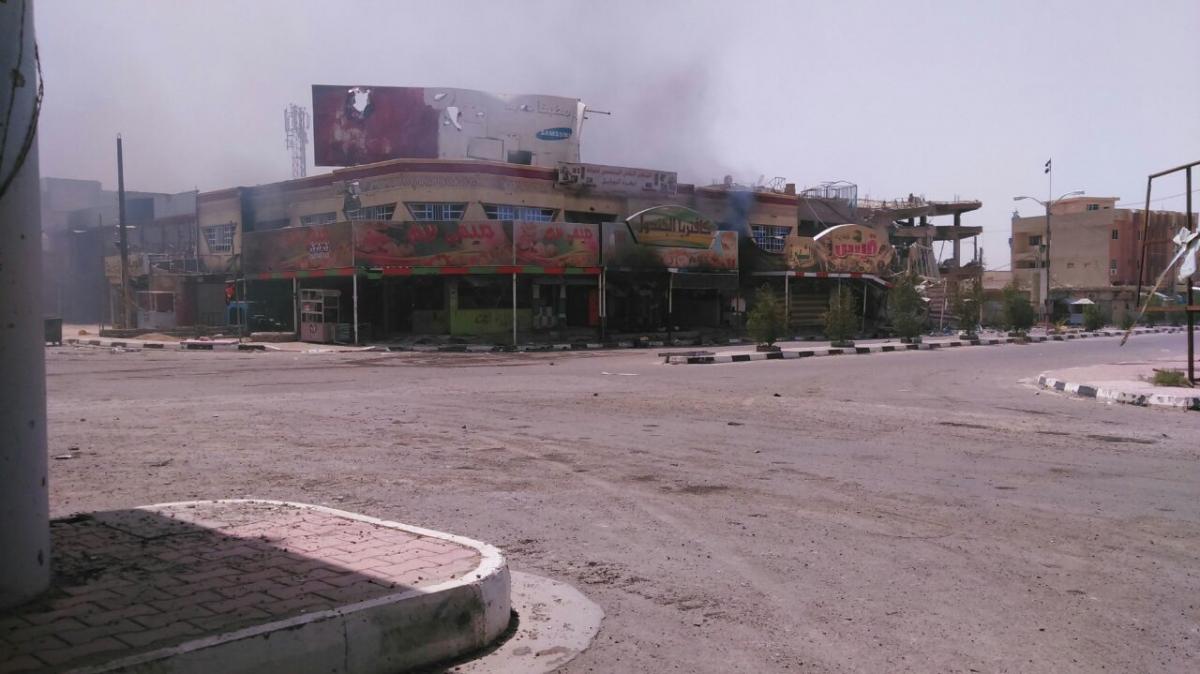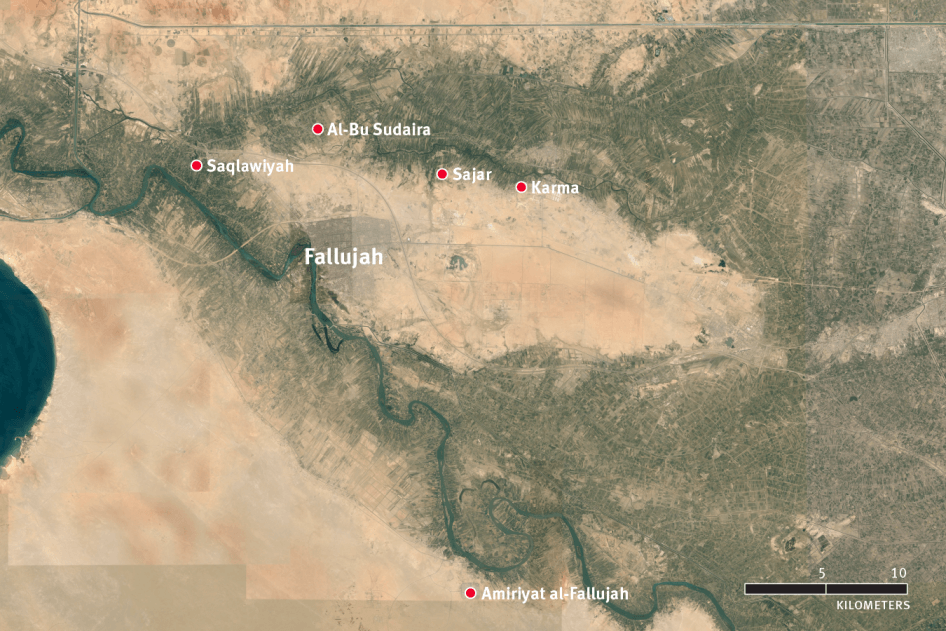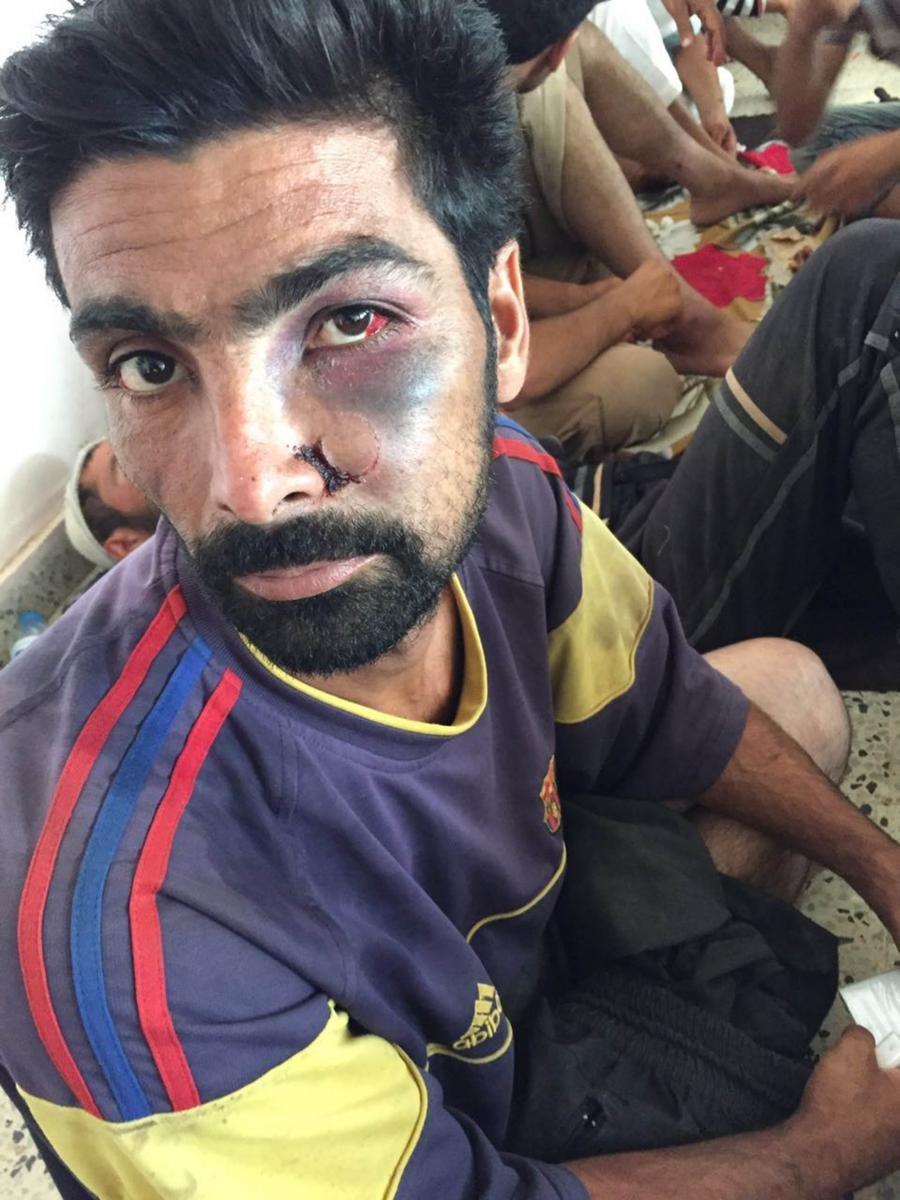An Iraqi government investigation into alleged abuses against civilians during military operations to retake Fallujah is being kept under wraps. New reports of serious abuses by the Popular Mobilization Forces and Federal Police compound the summary killings, enforced disappearances, and torture reported since the beginning of the operation, which Human Rights Watch documented.
On June 4, 2016, Prime Minister Haider al-Abadi opened an investigation into allegations of abuse and three days later announced unspecified arrests and the “transfer of those accused of committing violations to the judiciary to receive their punishment according to the law.” Government officials, however, have not provided information in response to Human Rights Watch inquiries since mid-June about the status of the investigation, who is conducting it, or steps taken so far.
“Failing to hold fighters and commanders accountable for grave abuses bodes very badly for the looming battle for Mosul,” said Joe Stork, deputy Middle East director. “Serious investigations and prosecutions are essential to provide justice to victims and their families, and to deter atrocities by government forces.”
At the start of the Fallujah operation against the Islamic State, also known as ISIS, on May 24, Prime Minister al-Abadi said that his government had taken measures to protect civilians. However, during the two weeks of fighting, there were credible allegations of summary executions, beatings of men in custody, enforced disappearances, and mutilation of corpses by government forces.
Abuses by government security forces in Fallujah have continued since the defeat of ISIS forces, Human Rights Watch said. A witness provided Human Rights Watch with a photo he said he took on June 27 on the northern outskirts of Fallujah of a decapitated corpse with a rope around his left foot.
He said he saw fighters of the Popular Mobilization Forces (PMF), an auxiliary fighting force under the prime minister’s command that includes many Shia militias, posing for pictures with the corpse moments before he took the photo. They were saying they were proud of killing a member of ISIS, though the status of the dead man as a combatant or civilian and the cause of death could not be determined.
Mutilation of corpses is a war crime, as is the killing of captured combatants or civilians, Human Rights Watch said.
The same witness said that in the Fallujah city center he saw PMF forces burning houses and shops while shouting slogans of revenge, and some looting. A photograph taken at the time shows burning shops in Fallujah. The media also reported arson and looting after government forces entered the city.
More reports have emerged about serious abuses during the Fallujah military operations. Several people, including two officials from Anbar governorate, told Human Rights Watch that on June 3, members of the Federal Police and the PMF executed more than a dozen civilians from the Jumaila tribe who were fleeing Sajar, a village north of Fallujah. The officials said they were protecting three witnesses.
As he disembarked, he saw from the uniforms that the guards were from Hezbollah, a prominent Popular Mobilization Force.He said that for the next 24 hours, the approximately 90 guards brutally beat him and the other prisoners, including with sticks and cables, while yelling anti-Sunni slurs. He said three of the men died in front of him. On the morning of June 5, local police forces freed the men, sending them to Amiriyat Fallujah Hospital.
The Anbar governorate official said the men who were released told him that they saw the PMF fighters take away another 600 or more al-Mahamda men. Another Anbar official provided a list of 49 men whom those released had seen die in detention. The official also shared a list of another 643 people still missing from Saqlawiya. The Saqlawiya resident who was detained and beaten told Human Rights Watch he had uncles and cousins who had been missing since June 3.
On June 28, in testimony to the US Senate, Brett McGurk, President Barack Obama’s special envoy for the global coalition to counter ISIS, said in response to a question from Senator Ed Markey about the Iraqi government’s investigation that “[a]bout 4-5 members of the Iraqi Army have been detained. The investigation hasn’t been concluded yet.” On June 22, McGurk had described reports of abuse as “isolated atrocities committed by some of the Popular Mobilization Forces” and said the Iraqi government was “doing the right thing to make sure that anyone who commits a human rights violation is held to account.”
Iraqi criminal justice authorities should investigate all alleged crimes, including murder, torture and other abuses, committed by any party in the conflict in a prompt, transparent, and effective manner, up to the highest levels responsible. Those found criminally responsible should be appropriately prosecuted.
Iraqi authorities should also fairly prosecute ISIS members and other perpetrators of unlawful attacks on civilians, including those responsible for the horrific July 3 attack on people shopping for the Eid holiday in the Karrada district of Baghdad, which killed at least 165 people and wounded another 225. Such attacks are war crimes and, when part of a widespread or systematic attack on a civilian population, constitute crimes against humanity.
Those conducting such criminal investigations and making decisions about prosecutions should be independent of those being investigated. They should be outside the regular military chain of command and free from political interference. The authorities should ensure the safety of all witnesses. At the same time, a commission of inquiry or equivalent should be created to examine the wider concerns about whether the abuses are being committed in a widespread or systematic manner.
“The US government needs to fully acknowledge and address the widespread, ongoing abuses by Iraqi government forces and the near complete absence of transparent investigations or any investigations at all,” Stork said. “The US should not be praising the government’s rhetorical commitment to accountability when there is zero information indicating that any such thing is happening.”
Critical but unanswered questions remain:
- Who is conducting the investigation and who appointed them?
- What is the investigation’s mandate and powers?
- Does the mandate of the investigation include command responsibility for abuses?
- Is the investigation under the High Judicial Council or is it an extra-judicial body?
- Is the investigation based on Iraqi military or civilian criminal law and does it include violations of the laws of war and crimes against humanity?
- How many investigations have been opened so far and what have the results been?
- Have there been arrests? If so what are the accused’s ranks and units, and what are the charges?
- Will the final findings and recommendations be made public?
Source




 RSS Feed
RSS Feed